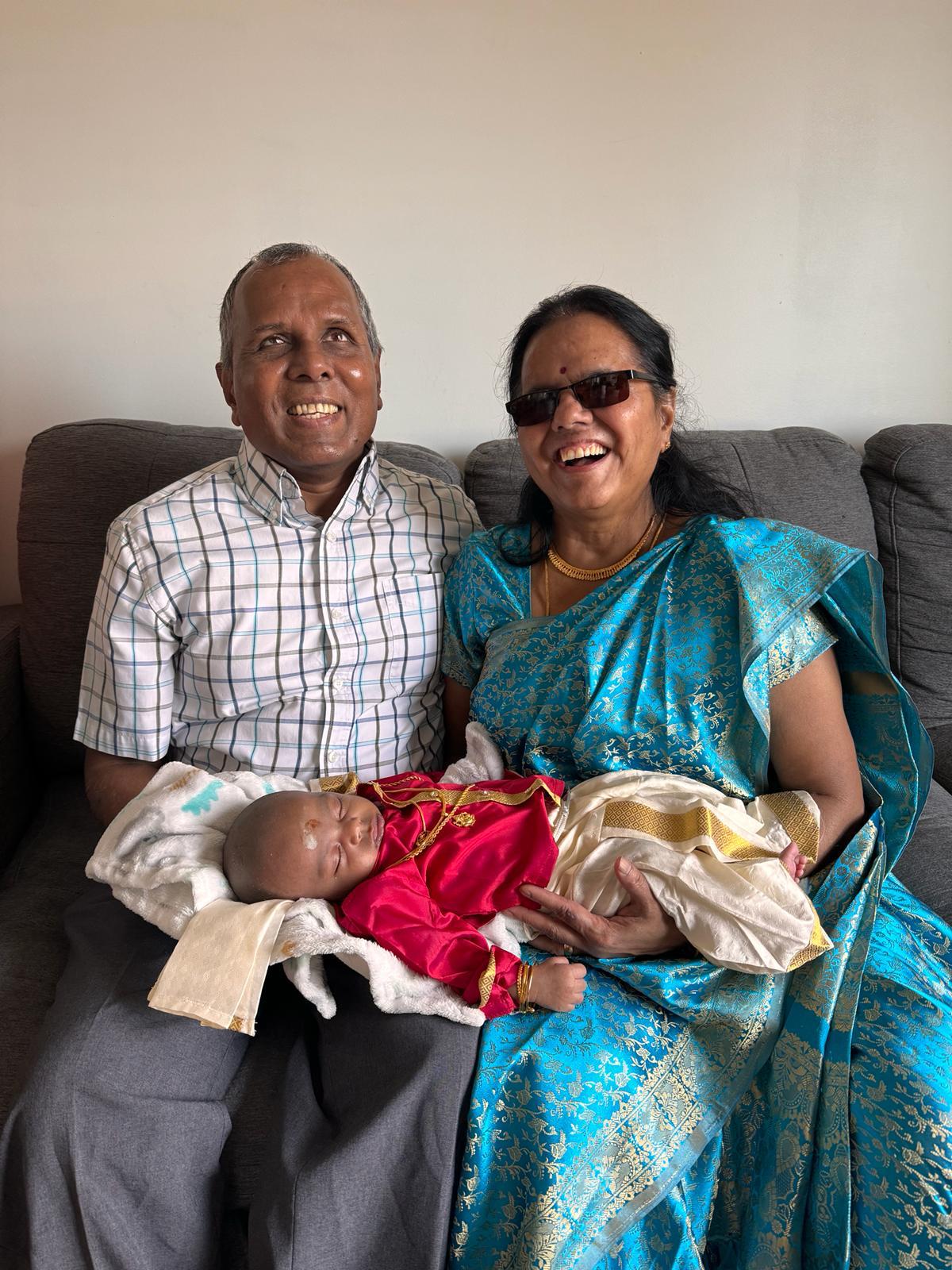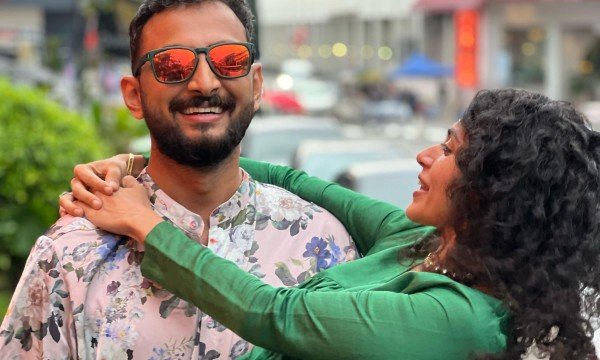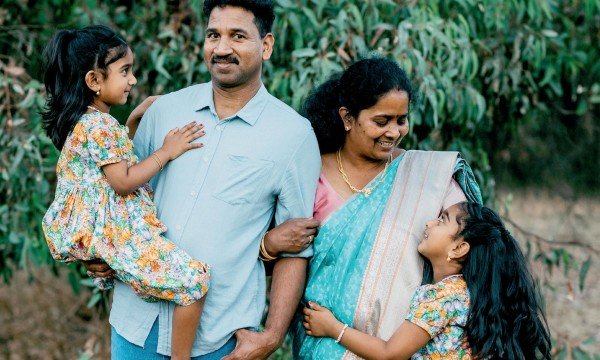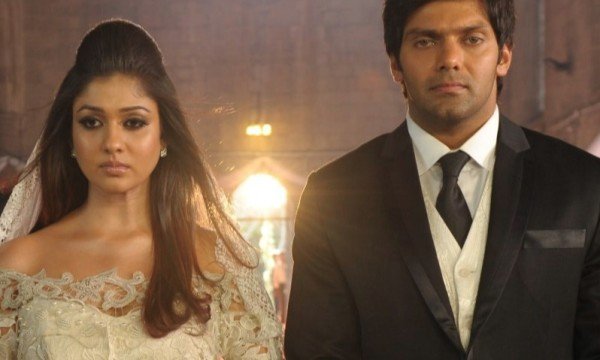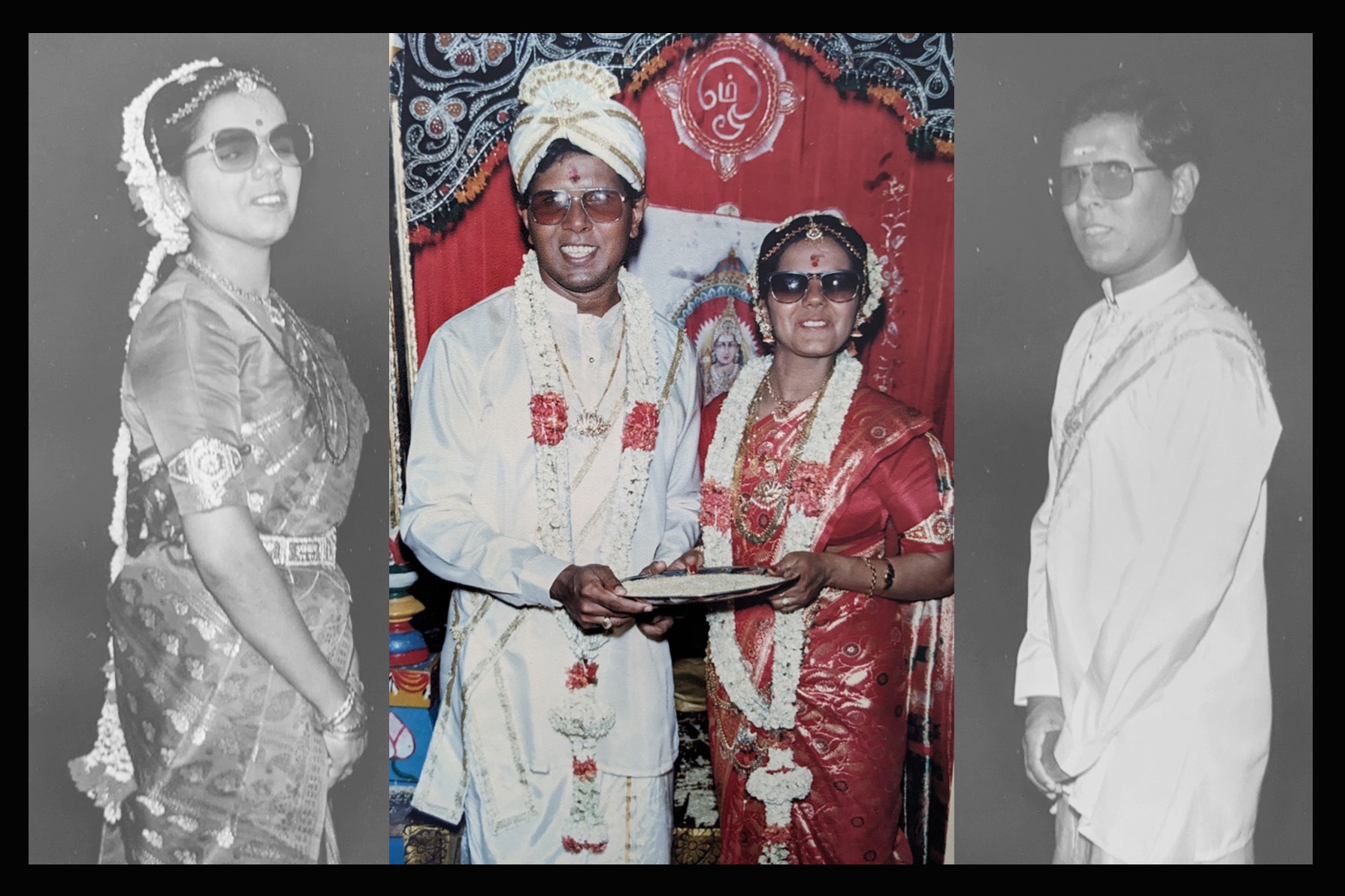
To celebrate the month of love, TC and myTamilDate are thrilled to kick off our 'Tamil Love Stories' series. Get ready to be inspired by the incredible journeys of couples from all corners of the diaspora. These stories are sure to awaken the hopeless romantic in all of us!
Selvamanikam Bhrapakaran and Jotheeswary Bhrapakaran, both identifying as blind, offer us a profound glimpse into their journey of love and relationships, highlighting the unique challenges that many of us may not fully comprehend. Bhrapakaran has been working at the bank of Nova Scotia in Toronto for more than 25 years - the first person with vision loss to be employed by any bank in the country. In addition, Jothy and Bhrapakaran are among the founding members of the Organization of Canadian Tamils with Disabilities (OCTD) where Jothy has served as the President.
Bhrapakaran and Jothy articulate their philosophy on living life to the fullest, refusing to allow challenges to dictate the course of their lives or the bonds of family they've cultivated.
How did you both meet?
Bhrapakaran (Bhrapa): I lost my sight at the age of 10 following a failed surgery. Since then, I resided in Colombo, where I pursued my studies, but I often visited Jaffna during school breaks. My educational journey faced a setback during my Advanced Levels due to the turmoil of the 1983 riots, which resulted in the destruction of my school materials in Colombo. Fortunately, some of the courses Jothy undertook were similar to mine, and our shared teacher, who also taught Jothy, facilitated the connection between us so that I could access her study materials. It was through this exchange that I first became acquainted with Jothy. We were both approximately 20-years-old at the time. Our paths crossed again at the Jaffna Association for the Visually Handicapped (JAVHP), where we engaged in social work together. Subsequently, we attended Jaffna University as part of the same cohort, fostering a friendship during our time there.
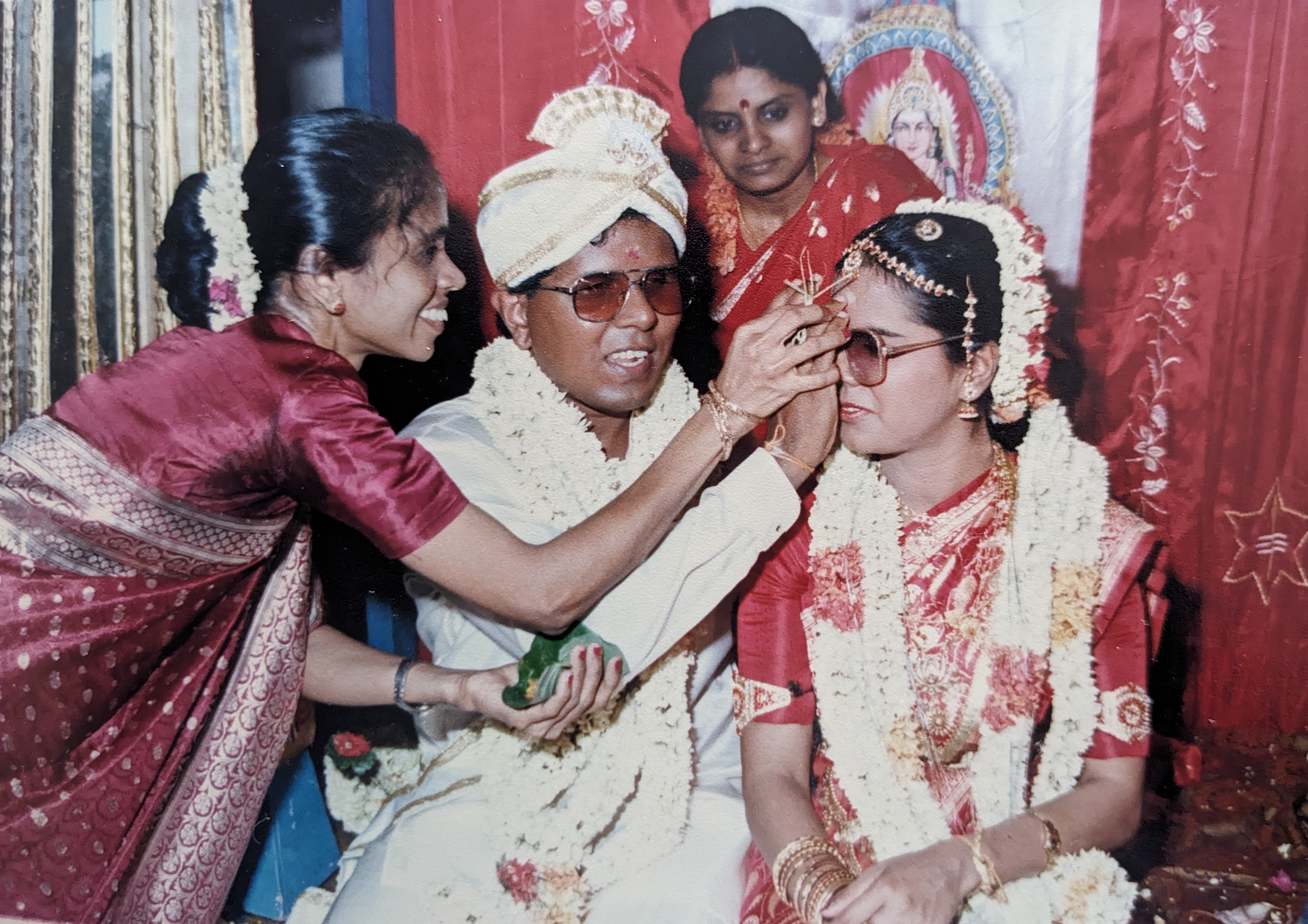
When did you decide that you wanted to get married to each other?
Bhrapa: About 4 or 5 years later, we played pivotal roles in the establishment of several schools for the blind. At that time, there was only one school, the Nuffield School for the Blind/Deaf in Kaithaddy. However, many visually impaired individuals were still not receiving formal education or lacked awareness about educational opportunities. Recognizing this gap, along with a teacher in Jaffna, we initiated efforts to advocate for the opening of more schools. Despite being university students, we dedicated ourselves to this cause, often skipping lectures to meet with NGOs or international organizations to pitch our project. Jothy served as the treasurer, while I served as the Secretary of JAVHP.
Jothy: Our efforts culminated in the establishment of Vaalvagham School in Chunnakam. This institution has thrived over the years, producing numerous graduates who have excelled in various fields.
Bhrapakar: Propelled by this success, we extended our efforts to Batticaloa. Amidst the turmoil of war, the six of us ventured to Batticaloa to identify visually impaired children, ultimately leading to the founding of Dharisanam School in Kallady. It was during these challenging yet rewarding endeavors that we began to realize our compatibility and deep connection.
Jothy: At that time, we were both 25-years-old, driven by our shared passion for education and empowerment within the visually impaired community.
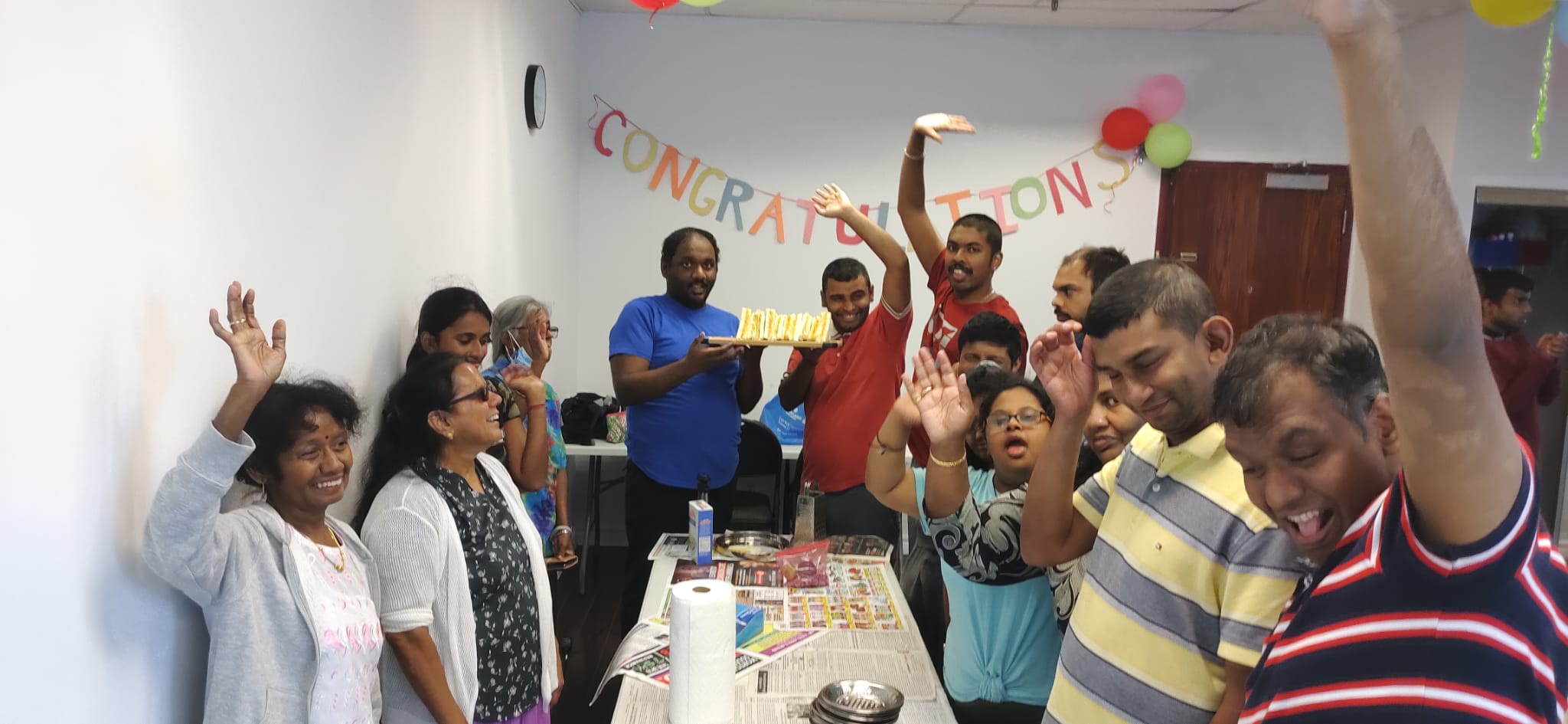
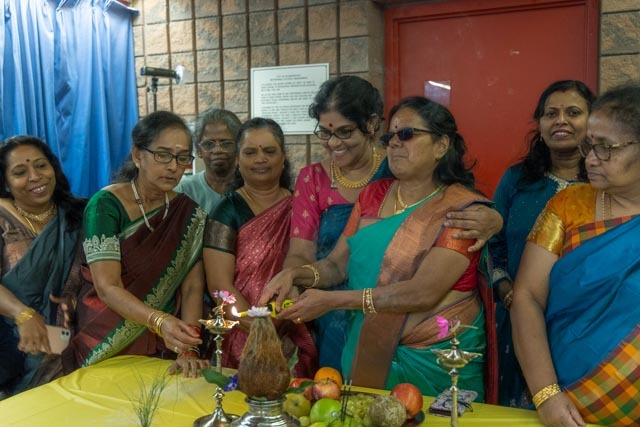
where Jothy and Bhrapakaran are founding members
What was it about each other that made you want to take that step to get married to each other?
Jothy: His honesty struck me immediately, and his eloquence only reinforced my initial impression. There was also an intuitive sense that he was the right person for me.
Bhrapa: Indeed, several factors drew us together. We shared a passion for social work and a genuine concern for others, embodying a service-oriented mindset. Our personalities complimented each other well; I tend to be more reserved while Jothy is more outgoing and talkative, creating a harmonious balance in our relationship.
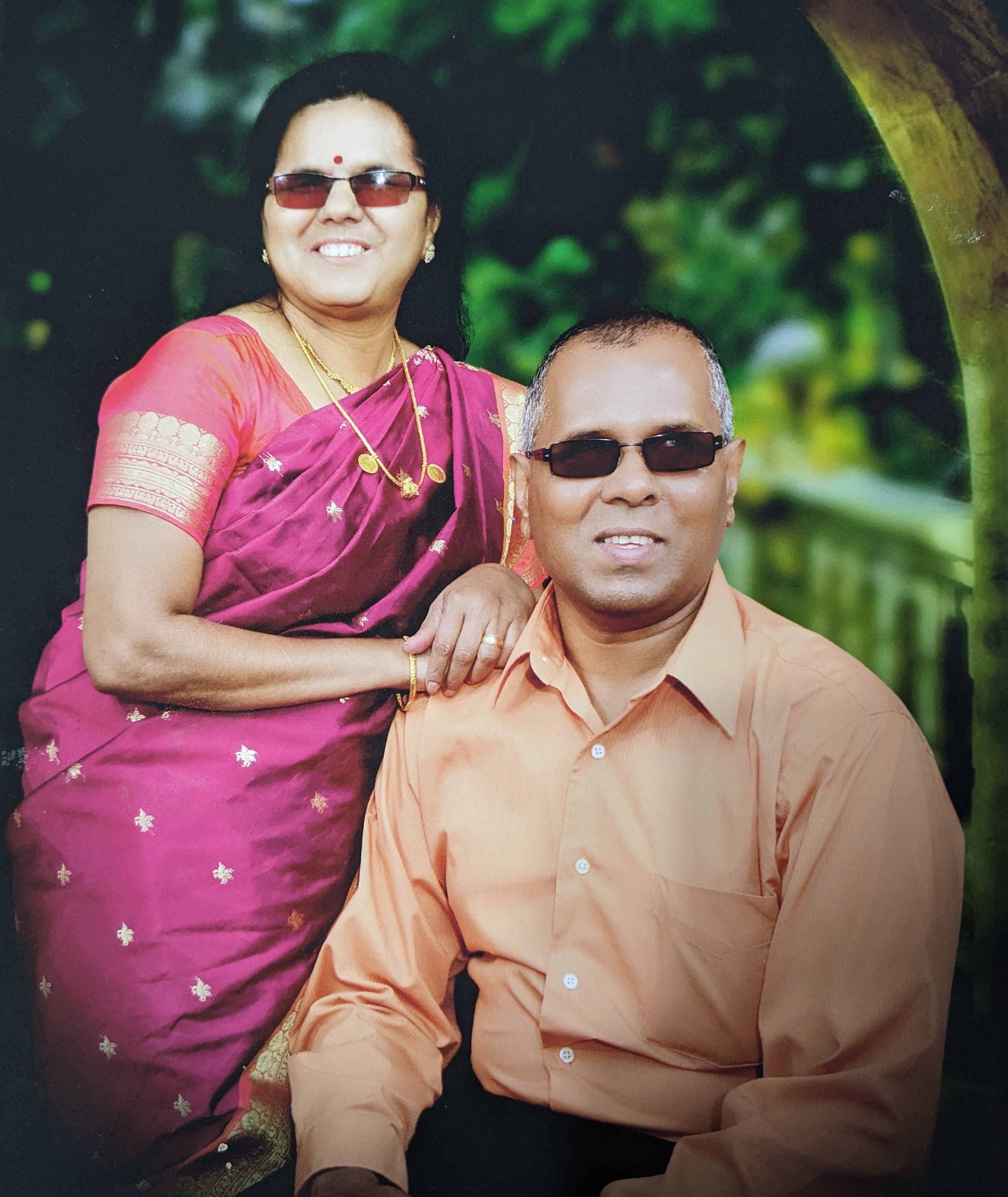
In relationships physical appearance plays a part. For you, it may have not been a factor but did it mean that the emotional connection needed to be that much stronger?
Jothy: At that time, I still retained some vision, allowing me to see him while he couldn't see me. Undoubtedly, he was a handsome person, and I must admit that this did play a role for me. However, beyond mere physical appearance, I was guided by a deeper intuition, a sense that he was the right partner for me.
Bhrapa: My family would have expected me to marry someone who was sighted. I did well academically and for a blind person I was quite talented. What truly mattered to me was her character. I followed my heart. Although friends would comment on her physical beauty, that wasn't a deciding factor for me. Witnessing another blind couple marry during that period served as an inspiration, demonstrating that love transcends physical limitations. It became a norm for blind couples to marry, including us. We officially tied the knot in December 1990 when we were approximately 27 or 28-years-old.
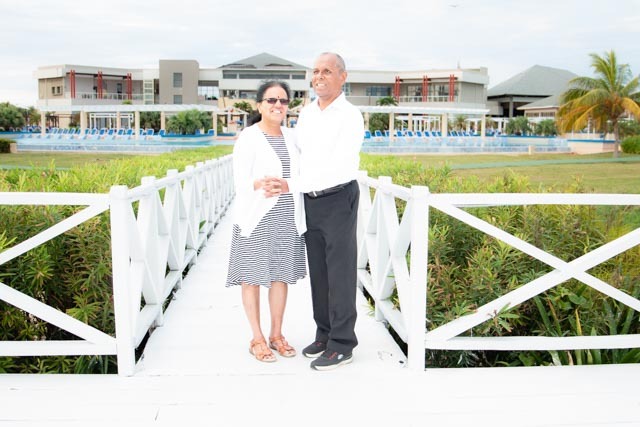
There is one thing to navigate physical challenges alone. But now when you have a partner, how do the dynamics change?
Bhrapa: The transition wasn't too drastic for us. I had developed strong mobility skills, and together, we managed our household and cared for our children effectively. Before Jothy lost her vision completely, we were already raising two kids, and later, we welcomed our third child.
Jothy: One of the challenges I faced was selecting clothing and ensuring the colors matched, especially with items like socks.
Bhrapa: When Jothy lost her vision, our eldest daughter, who was about 4-years-old at the time, stepped in to help identify colors. We utilized her sense of sight to our advantage in such situations. Despite the adjustment, Jothy continued to handle tasks like cooking, employing techniques tailored for the visually impaired.
Jothy: I underwent training from an organization called Balance, which equipped me with essential daily living skills, including cooking and baking, specifically designed for individuals with visual impairments.
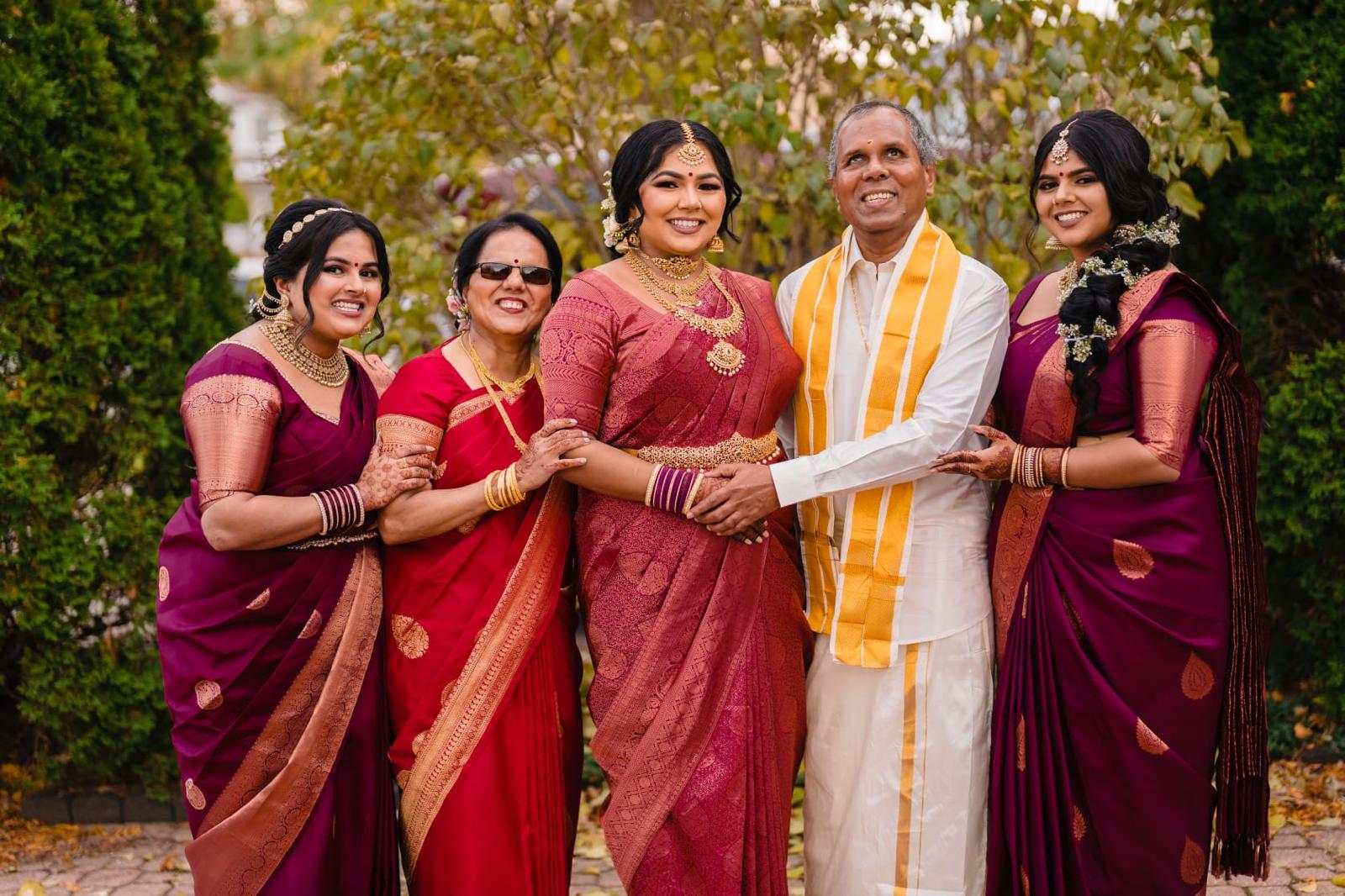
captured at a very special moment in their lives
You have three children, all of whom are sighted. How challenging was becoming a parent, especially with your first child?
Bhrapa: Parenthood felt natural to us, given our prior experience with kids in our extended family. Jothy arrived in Canada in 1991, followed by my arrival in 1997 since I was working in Sri Lanka till then in the Administrative Services (SLAS), a coveted position. However, with the escalating war back home, relocating here became imperative. During the birth of our first daughter, Jothy resided with her mother and brother's family, and once I joined them in Canada, we began living independently in our own apartment.
Jothy: Before Bhrapa joined me in Canada, I had the support of my family. However, once we started living alone, we became quite self-reliant in our own apartment. The birth of our third daughter, after I lost my vision completely, posed new challenges for us. Despite this, we managed to overcome them. From bringing the baby home from the hospital to tasks like bathing her and administering medication (which we measured using syringes), we handled everything ourselves. Only for activities like cutting her nails did we seek assistance from my family. We learned that with determination and adaptability, anything is achievable.
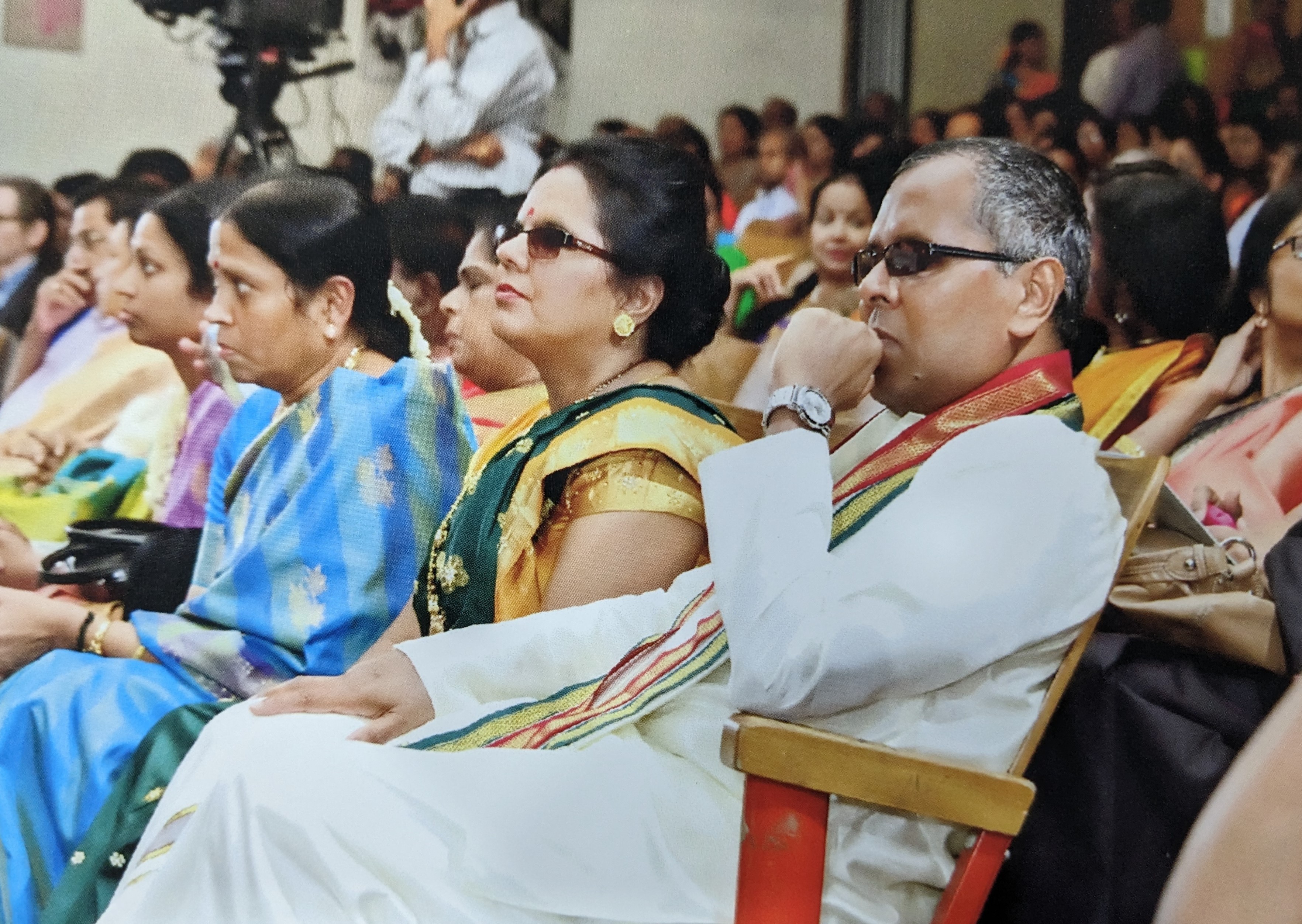
Children often compare their parents with others, noticing what they have and what they do not. Did your children ever feel that things were different for them, and if so, how did you navigate this situation?
Bhrapa: No never. They were proud to be our children. Their teachers were very supportive. We always attended every school function that they participated in. And our kids proudly introduce us to everyone. I know there might be stigma in certain parts of the world such as Sri Lanka.
Yesterday one of our friends’ mentioned how he saw a video of me doing obstacle courses where I was almost mid air in one of the activities. He asked how are you able to do it when even I wouldn't put myself through it with having sight?
Jothy: We have traveled everywhere! Be it Wonderland, Centre Island (which was our second home during Summer), or the City or Cottages even abroad to places like France & Switzerland. We were never at home during the weekends.
Bhrapa: My friends weren’t married when I had kids so they drove us around to these places. We will rent out a large van and go all over! We were out and about.
Jothy: We made sure that they had a better life and experiences than what other families may have. We took efforts to ensure that they were well rounded. Spiritually, mentally and physically. Be it music and dance lessons, spiritual classes they were provided with as much exposure as we could provide them with and the best teachers we can find in Toronto.
What is one of your favorite things to do as a family?
Bhrapa: Playing music together!
Jothy: Bhrapa plays the keyboard and the dholki. All of my children sing well and play the violin.
What advice would you give your daughters when choosing a partner?
Jothy: Many people have preconceived notions about what their partners should be like, but it's essential to be open to the person and the experience. Additionally, when parents prioritize building a healthy and happy relationship at home, their children often emulate similar behaviors in their own relationships. Bhrapa and I make a concerted effort not to argue in front of our children; instead, we address our disagreements privately.
Bharapa: In today's society, many individuals postpone major life events like marriage and starting a family. However, if having children is a priority for you, it's crucial not to delay unnecessarily. Waiting can lead to complications as you age, including fertility issues that may require procedures like IVF. Furthermore, having children earlier allows for more quality time with them, ensuring that you can fully enjoy and cherish those precious moments without feeling exhausted.
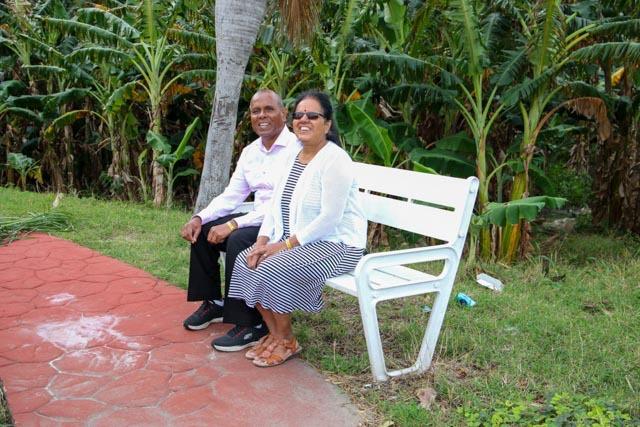
For someone who is looking for love and relationship today what would be your advice?
Bharapa: It's essential to give each other space and independence and refrain from trying to change your partner. When dating someone, be mindful of their characteristics, and when choosing to marry them, accept them for who they are.
Many people we know regret being overly picky in their youth, only to struggle finding companionship later on. Ultimately, it's your own decision, and blaming others for your situation won't change it.
Jothy: Being open-minded is crucial. Some children fear inheriting their parents' marital issues, but everyone's destiny is unique. Accept your partner as they are and avoid imposing unrealistic expectations on them.
Relationships have become transactional nowadays, with many focused on what they can gain from their partner. Instead, prioritize giving to the partnership's common goals.
Marriage brings a new dimension to life. I feel people chase relationships when they are much younger but if it doesn’t happen they give up. My belief is that when you get older, it is very important to have a companion. Else life can become mundane.
Life is an experience that's why we are here. So live it up!
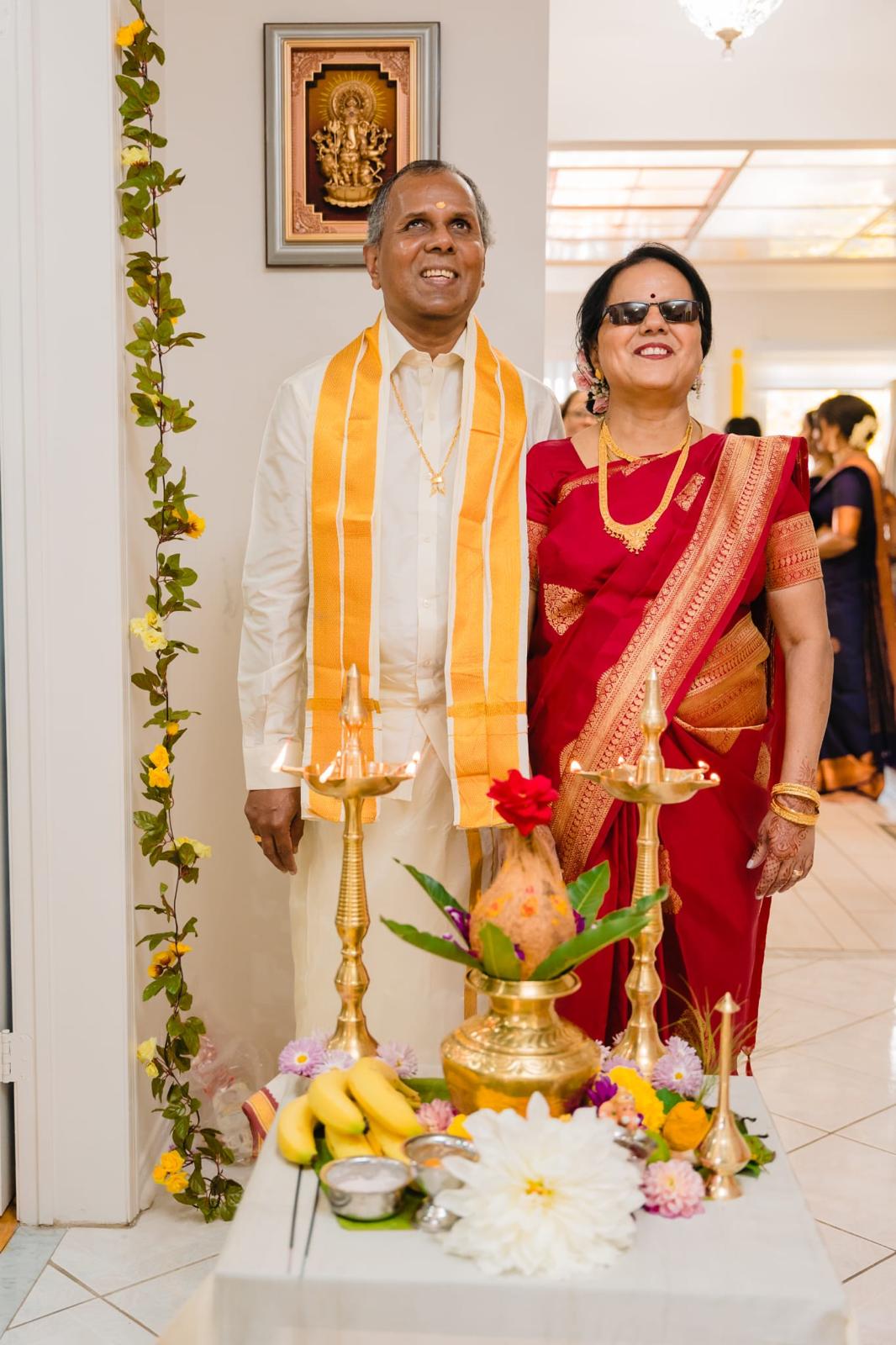
Finally, Bharapa, since you are so into music, a song that you would like to dedicate to Jothy?
“நூறு முறை பிறந்தாலும் நூறு முறை இறந்தாலும்
உனைப் பிரிந்து வெகு தூரம் நான் ஒரு நாளும் போவதில்லை
உலகத்தின் கண்களிலே உருவங்கள் மறைந்தாலும்
ஒன்றான உள்ளங்கள் ஒரு நாளும் மறைவதில்லை” - Song from the film Vallavanukku Vallavan. Music by Vedha and lyrics by Kannadasan
Translates into: “I may be born a hundred times, or die a hundred times but I am never far away from you!
Even if images disappear from the worldly eyes, hearts that are together never part away!”
